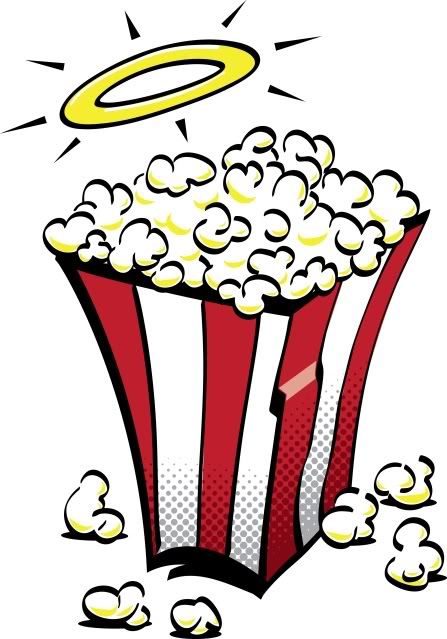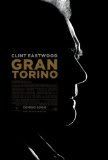
January 19, 2009
Gran Torino (2008)
Should I see it?
This is a great movie. There are many aspects of the film worth praising but I keep coming back to the work of screenwriter Nick Schenk. Schenk has given us a tightly constructed and meaningful script worthy of a Best Screenplay nod. While it is very possible that a good portion of the lines in the film were improvised, Schenk's storyline and character work are very impressive.
The actual plot is not a marvel. A weathered old Korean War Veteran, who has seen his neighborhood disintegrate into a ghetto, comes to the aid of a Hmong family next door. The veteran, Walt Kowalski (Clint Eastwood), spits racist taunts at the family, but still finds common ground with them once they are confronted by a local Hmong gang. Until the last ten minutes or so, the plotting is pretty conventional stuff. Unpredictability is not one of the film's selling points. Where the film strikes gold is in its characterizations and dialog. Schenk and Eastwood (who directed the film) masterfully deliver what I believe to be the best characters recent memory. Schenk's Kowalski seems custom built for the actor. Eastwood digs into the character and gives one of his best performances (he'll never do better than Unforgiven). Making Kowalski a sympathetic guy is no easy task. He is a bitter, grumbling, racist who doesn't have much time for people. He opens as a stoic, granite-faced curmudgeon. As the film progresses and he finds a relationship with the Hmong family next door he softens and the man inside emerges. All the while he speaks his mind, no matter how vile his thoughts. His frank honestly, regardless of the racist wording he uses, makes him endearing in a strange way.
A word about the racist dialog in the film. If you are sensitive to blatant displays of racism this is not a film for you. Eastwood spouts out racist comments that are shocking in this age of sensitivity and PC. I found the use of racism in the film to be smartly played. At first it is used to establish the disconnect Kowalski has with his neighbors and how much of an alien he has become in his own home. Not only does Kowalski sneer at his Hmong neighbors, they sneer right back asking "why doesn't this American leave?" As Kowalski grows closer to the family he retains his bigoted language. But the tone of it changes. Instead of being hatred it is used to show a strange bit of respect in the same way two friends will viciously mock each other as a sign of friendship. You can say something hurtful to me but it doesn't matter, you still like me and I still like you. There's this difference between us but it is irrelevant. This relationship is buttressed by Kowalski's banter with his Italian barber Martin (wonderfully played by John Carroll Lynch). The two men rip each other mercilessly with of the worst racist language possible. At one point Kowalski brings in a Hmong teen who he has taken under his wing. To teach him how men talk to one another he teaches the teen to assault the barber with bigoted bile. The scene is the film's best. In an age where we pretend even unintended phrasing is somehow akin to being a founding member of the KKK, the display of race based dialog in this film is somewhat refreshing to hear. This is not because I'm harboring some sick need for racist talk but because I love honesty. Who wouldn't rather have people talk frankly about what they're thinking than all of this East Coast liberal double-talk sensitivity we live with today?
The film also does a fantastic job of showing America as it stands today. The "American Century" is over and Kowalski perfectly represents that bygone era. American industry is dead or dying (Kowalski worked at a Ford plant his whole life) and the country's demographics are quickly changing. The promises of the past have not paid the dividends as expected. What it has left is a generation of spoiled, self-absorbed monsters who have no sense of history or decorum. Kowalski's grumbling in the first act speaks for anyone concerned for the country. We are headed somewhere and not many people think its someplace nice. What shows promise is that in the opening scene, at Kowalski's wife's funeral the grandchildren arrive wearing sport jerseys and tank tops. While my generation has raised what appears to be the worst generation ever, populated with people who would wear flip-flops to a funeral, I found it comforting that its still possible to show this behavior as bad form. The concept of respect is still there someplace in our society. Over and over while I watched the film I kept thinking about how disappointing it must be to be elderly today. You've sacrificed your whole life, you've gone to war you've worked and saved and you look and see a country filled with dome-drink sipping, ipod zombies who don't even remember the name of the war you fought in.
This is a great film. I recommend it fully.

Related Reviews:
Clint Eastwood movies
Letters from Iwo Jima (2006)
Dirty Harry (1971)
Other Critic's Reviews:
Christianity Today
The Independent Critic
Labels: Clint Eastwood, film, movie review
Share
Previous Posts




Good News Film Reviews LLC 2004-2010 - used with permission
Images, video and titles are the property of their respective copyright holders. Good News Film Reviews LLC claims no ownership or connection to them.
The views expressed on this site are not the opinion of any advertiser or external entity.
While we take care to only link to responsible entities, Good News Film Reviews LLC takes no responsibility for the content linked from this site. There are sharks in the waters. Surf at your own risk.
The Template is generated via PsycHo and is Licensed.






















1 Comments:
Awesome! I've been putting off reading your review until I saw the film. I saw it tonight and I've just read your review, and it looks like this is an instance of you and I agreeing pretty much totally. We even both picked out the same favorite scene. Yeah, this is a really good movie, noteworthy for it's honesty and it's tight pace. I hope people make an effort to see it.
Post a Comment
<< Home